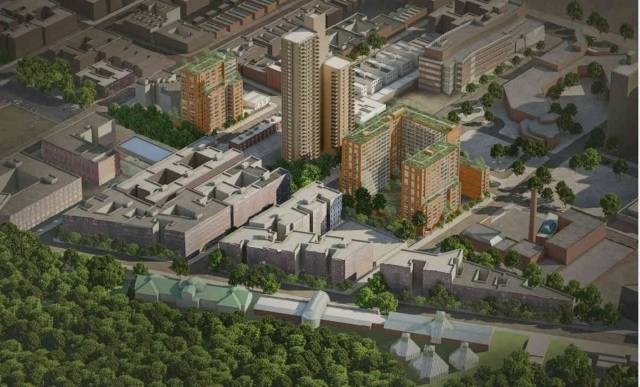The Brooklyn Supreme Court issued a temporary restraining order against a Crown Heights development that would block sunlight from the Brooklyn Botanic Garden, reports Gothamist.
The Movement to Protect the People, a Crown Heights community group that organizes against overdevelopment, resident displacement and rezoning, filed a motion against the developer Cornell Realty, City Councilmember Laurie Cumbo and the Department of City Planning, among other city agencies, on April 11.
Developers Cornell Realty Management and Carmel Partners are planning to build two 16-story towers that would yield 518 residential apartments, including 140 below-market-rate units. But opponents of the project, including MTOPP, say it would cast damaging shadows onto the nearby Brooklyn Botanic Garden.
"This is a classic case of David and Goliath, where the people, who live in low- to moderate-income communities of color, are fighting big-time real estate deals and unsavory politicians," said Alicia Boyd, an MTOPP co-founder, in a statement. "Too often in these communities, there is no accountability, no transparency and a bending and even breaking of the law, when it comes to real estate development projects, especially ones that have to go through the public review process."
Brooklyn Supreme Court Judge Johnny Lee Baynes granted the temporary restraining order, putting the construction effectively on hold by prohibiting the city from issuing any permits to the developers until the parties appear at a pending court hearing. The order cites the City Council Franklin Avenue rezoning approval from December 2018, which paved the way for developments at 40 Crown Street and 931 Carroll Street, both on or near Franklin Avenue.
The judge based his decision on the fact that the Department of City Planning did not issue an environmental impact statement, which would have required the city to study the project's possible effects on the surrounding community, such as air quality, neighborhood character and socioeconomic conditions. Instead, the department determined that the development would not cause "potentially significant adverse environmental impacts."
The developers and opponents of the project are scheduled to meet in court on May 3.




